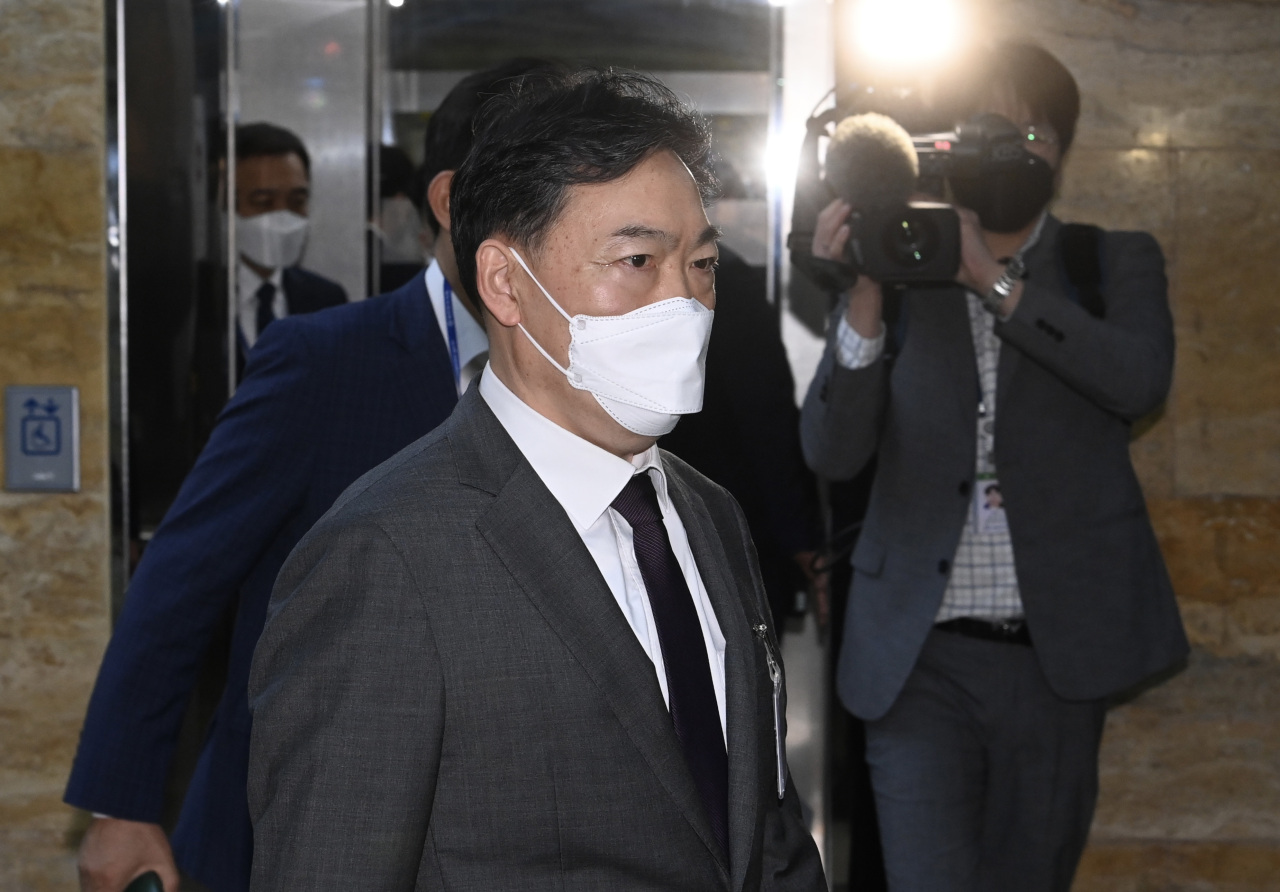South Korea’s liberal Democratic Party of Korea officially submitted for review a bill that would completely strip away the prosecution’s investigative powers.
Legislators with the Democratic Party told reporters Friday that they submitted a bill proposing revisions to the Criminal Procedure Act and the Prosecutors’ Office Act, which will leave the prosecution only with the power to indict and prosecute charges on given cases.
The bill would need to be reviewed by parliamentary committees before being put for a final vote at the general session of the National Assembly. The Democratic Party believes it will be able to get all the necessary approvals by May 4, the end of this month’s provisional parliament.
The Democratic Party has argued it has to process the bill before President Moon Jae-in’s term ends in early May, claiming it is crucial for the prosecution reform that started with Moon’s presidential term to be finalized before President-elect Yoon Suk-yeol takes office.
Its legislators believe Yoon, with an extensive career in the prosecution, will attempt to give more power and authority to the prosecution and undo the progress achieved during the Moon administration. They argue the bill is a means to address the problems at the law enforcement agency, which has long been accused of abusing its power for political purposes.
Many have accused the liberal party of pushing the bill too hastily as it expects the prosecution will launch extensive investigations into allegations surrounding the liberal party’s former presidential candidate Lee Jae-myung as well as those surrounding Moon and his close aides.
The Democratic Party has power to pass the bill within its own time constraint, as the party controls more than 170 out of the 300 seats in the National Assembly. Yet the party has faced immense opposition from almost all related sectors.
If changes to the prosecution go ahead as the Democratic Party plans, the prosecution would lose opportunities to conduct supplementary investigations for critical cases, and the division of roles between the prosecution and the police could result in uncertainties and confusion for all parties.
A wide range of criminal investigations overseen by the prosecution would also “disappear” and be left idle, some have claimed, accusing the Democratic Party of using the criminal justice system for political purposes.
The incumbent prosecutor general has voiced staunch opposition to the legislative move, requesting a one-on-one meeting with Moon and discussed the issue with legislators at the National Assembly for two consecutive days.
Prosecutor General Kim Oh-soo on Friday went as far to say that those in the political circle should impeach him from the post first if they wanted to pass the bill in question, arguing the liberal party’s move is directly against the Constitution and a betrayal of public interest.
“I think it is acceptable to consider processing the bill only after undergoing the impeachment process on myself,” Kim told reporters before attending a meeting with National Assembly Speaker Park Byeong-seug.
“And I hope the legislative process is conducted through ample amount of discussion along with careful consideration.”
Kim was scheduled to appear before a general meeting of the Legislation and Judiciary Committee at the parliament Friday afternoon to speak about the bill.
The presidential office essentially rejected Kim’s request for a one-on-one meeting with Moon, saying the matter is in the hands of the parliament for the time being.
“Prosecutor General Kim Oh-soo did request a meeting, but I have repeatedly mentioned that the problem is undergoing a time of legislative process at the National Assembly,” a source in the presidential office told reporters Friday.
The liberal party’s conservative rival, the People Power Party, has fiercely opposed the bill, warning to wage a filibuster if the bill comes to a final vote at the National Assembly.
People Power Party Chairman Lee Jun-seok said in a radio interview Wednesday that the party is ready to launch a filibuster and engage in endless debates to stop the bill from being enacted.
If the People Power Party consolidates forces with minor left-wing Justice Party, the Democratic Party will be unable to stop the filibuster through a vote, meaning the bill could end up failing to pass the final stage even if the Democratic Party uses its power to get all the committee-level votes.
Public sentiment toward the bill has not worked in the favor of the Democratic Party, who has claimed that the bill was drafted in consideration of public interest and that the masses back curbing the prosecution’s powers.
A Realmeter survey of 1,017 adults conducted Wednesday showed 52.1 percent of respondents were against the move to strip the prosecution of its investigative powers, while 38.2 percent were in favor of the move. More than 84 percent of the respondents said they are well aware of the content of the legislative proposal under discussion.
By Ko Jun-tae (
ko.juntae@heraldcorp.com)








